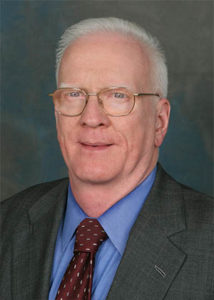
27 Feb 2023 Bonner Cohen: Schemes to Suck CO2 From the Air Will Reduce Global Food Supply
The obsession of global elites – in and out of government – with saving the planet from what they insist is a “climate crisis” includes a slew of policies that enrich politically favored purveyors of green energy while disregarding the interests of ordinary people.
But neither Wall Street brokerage firms hustling ESG (environment, social, and governance) investments, nor all the regulations imposed by government targeting carbon dioxide (CO2) emissions, are likely to have any effect on the climate. Goals such as reaching “Net-Zero” emissions by 2045 or some other arbitrarily chosen date are likewise doomed to failure.
Recognizing the futility of maintaining the current course while continuing to demonize CO2 as the cause of the planet’s impending doom, some have turned to geoengineering as a possible path forward. No less than Bill Gates is investing millions in a technology called “direct air capture,” which would suck CO2 from the sky.
This is where the climate agenda of global elites crosses into territory where it threatens the lives and livelihoods of those far removed from the confines of Davos, Martha’s Vineyard or Silicon Valley. For policies aimed at actually lowering levels of atmospheric CO2 carry their own risks, and they are considerable.
High levels of CO2 are absolutely essential for all plant and animal life, including crops. The Earth’s population recently crossed the 8-billion mark, and, as the Hudson Institute’s Dennis Avery noted two decades ago, the world’s best farmland is already under cultivation. The rest is marginal at best, making the real task at hand raising crop yields to levels that will feed billions of hungry people. For that to happen, we need more CO2 in the air, not less.
Furthermore, the higher the CO2 level, the less water plants and crops need to survive. But water is scarce in many parts of the world, and crops being deliberately starved of CO2 in the name of combatting climate change will require more water, which arid parts of the world simply can’t deliver. The predictable result will be a far less abundant agricultural sector, which will seriously jeopardize global food supply. If this came about, it would not be the world’s first manmade famine.
Tampering with the Atmosphere at Our Peril
Today’s atmospheric CO2 levels are about 420 parts per million (ppm), up from roughly 250 ppm at the end of the Little Ice Age 200 years ago. As attested by satellite imagery, this rise in CO2 has led to a gradual greening of the Earth in recent decades, which has greatly benefitted wildlife and agriculture. This is not a trend we want to reverse.
Geoengineering, like its distant cousin social engineering, is fraught with unintended consequences. By focusing on a monocausal explanation of climate variability, we run the risk of allowing hubris to guide our actions, thereby undermining human well-being and the planet’s biodiversity.
Bonner Russell Cohen, Ph. D., is a senior fellow at the National Center for Public Policy Research.




